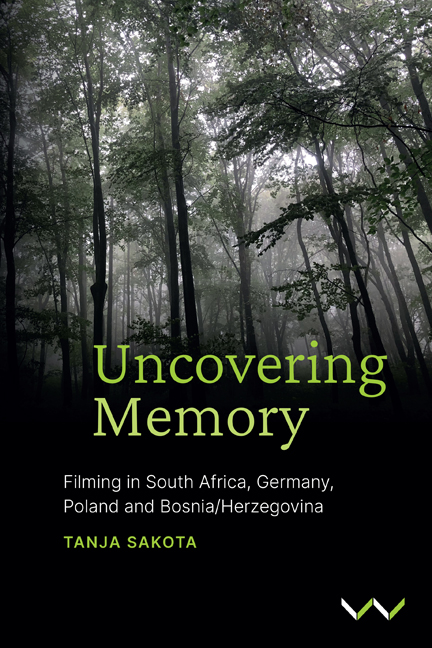Book contents
- Frontmatter
- Dedication
- Contents
- List of Images
- Foreword
- Acknowledgements
- Map of Africa and Europe
- Practice-Based Research, Teaching and Learning
- Part I Working With Students: Cape Town, Johannesburg, Berlin
- Part II Working With Peers: Constitution Hill, Johannesburg
- Part III Working With Myself: Poland, Germany, Bosnia/Herzegovina, South Africa
- Moving Forward
- Film Credits
- Glossary of Terms
- Notes
- Bibliography
- Index
Chapter 2 - Film as a research tool
Published online by Cambridge University Press: 24 November 2023
- Frontmatter
- Dedication
- Contents
- List of Images
- Foreword
- Acknowledgements
- Map of Africa and Europe
- Practice-Based Research, Teaching and Learning
- Part I Working With Students: Cape Town, Johannesburg, Berlin
- Part II Working With Peers: Constitution Hill, Johannesburg
- Part III Working With Myself: Poland, Germany, Bosnia/Herzegovina, South Africa
- Moving Forward
- Film Credits
- Glossary of Terms
- Notes
- Bibliography
- Index
Summary
Traditionally film education has separated theory from practice and followed a model where theory is interpreted and deliberated before it is put into practice. The lecturer is usually the one who oversees the process and comments as the film develops. My focus is not on film schools nor is it on the industry but rather on how film programmes within universities can bridge the fissures between theory and practice. The process used throughout this book engages with the subject matter, using the methodology of camera first, theory later. This shift in practice preceding theory forces the camera to become the learning tool; the theoretical understanding emerges through and after filming once the images are processed and interpreted. I see my role as a facilitator but also as a researcher who engages with the process where the learning happens as a symbiotic and organic collaboration and investigation.
Contemporary ideas of art as research have reflected similar dynamic approaches to learning. Active participation is a method that was used by Paulo Freire (1972) 50 years ago but it has also featured more recently in public healthcare research. The method breaks hierarchies in education and research and opens doors to experimental methods of teaching and learning. Active research is structured around ‘trying out ideas in practice as a means of improvement and as a means of increasing knowledge about the curriculum, teaching, and learning’ (Kemmis and McTaggart 1988, 6). In public healthcare, it is referred to as participatory action research (PAR), which transforms the research approach. Fran Baum, Colin MacDougall and Danielle Smith (2006) identify PAR as a research method that questions the nature of knowledge and the extent to which it can represent those in power. They recognise that experience can be a basis of knowing and that experiential learning can lead to a legitimate form of knowledge. This method identifies that certain research and education systems are structured for those in power and, thus, are only accessible to those who exist in those frameworks or moulds. This context for education also became evident through the #RhodesMustFall campaign. The colonial past as well as apartheid ensured limited access to education. Also, it privileged certain groups. Those who came into tertiary education from outside of those groups were not adequately equipped to deal with its structure, demands and expectations.
- Type
- Chapter
- Information
- Uncovering MemoryFilming in South Africa, Germany, Poland and Bosnia/Herzegovina, pp. 19 - 26Publisher: Wits University PressPrint publication year: 2023



